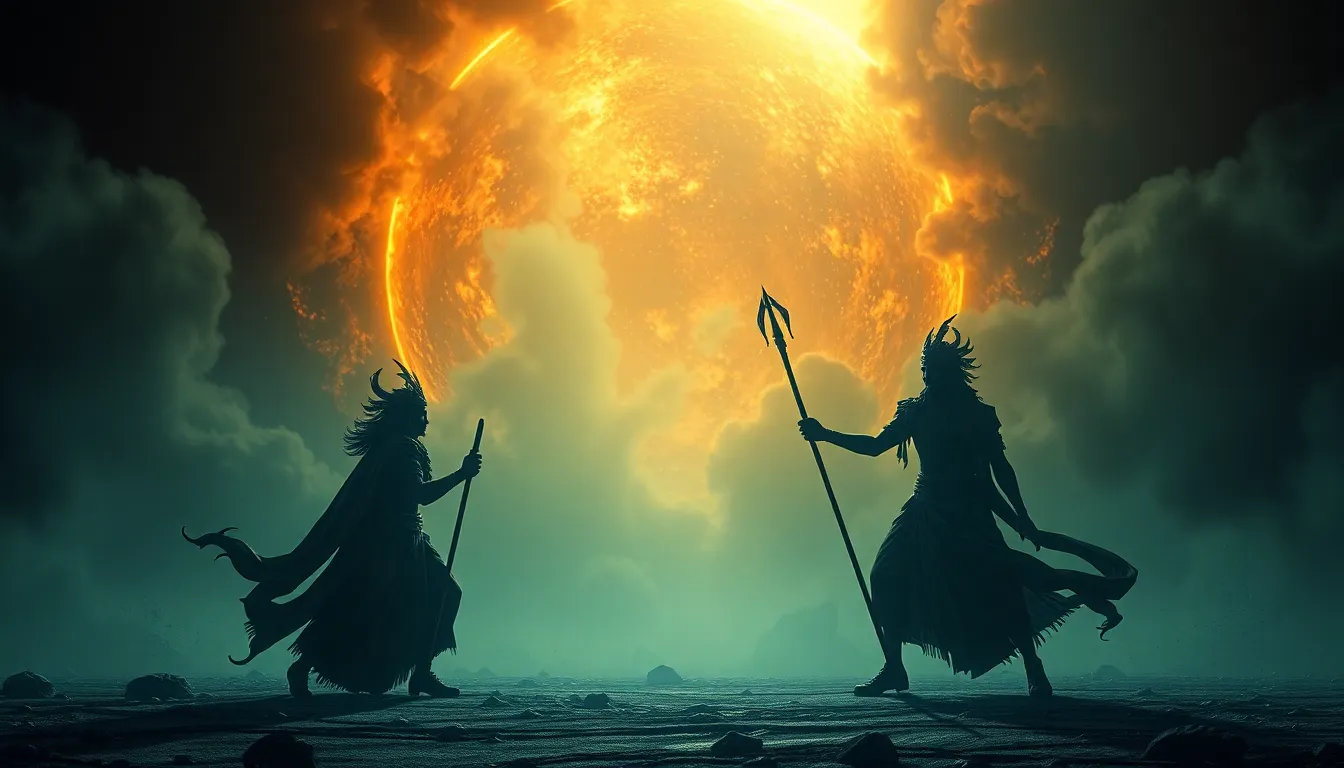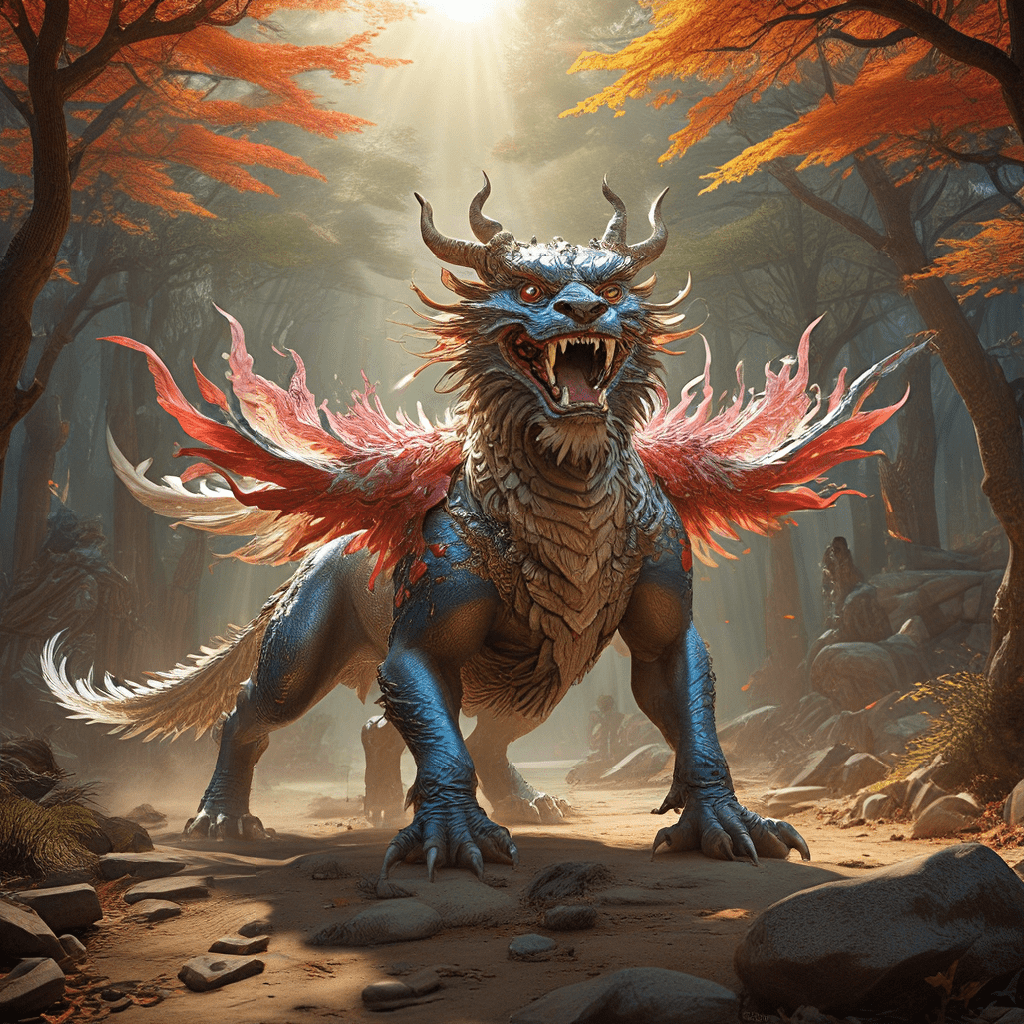Cultural Hero Myths: The Stories That Define Our Identity
I. Introduction
Cultural hero myths are powerful narratives that embody the values, beliefs, and aspirations of a society. These myths often feature larger-than-life characters who embody the ideals and virtues that communities hold dear. They serve not only as entertaining tales but also as essential frameworks for understanding identity and belonging.
The importance of hero myths lies in their ability to shape cultural identity. They provide a shared heritage that fosters connection among individuals and communities. This article will explore the role of hero myths in cultural identity, their historical context, archetypes of heroism, contemporary examples, societal functions, and the implications of these narratives for the future.
II. The Role of Myths in Cultural Identity
Myths serve as narrative frameworks that help individuals and groups make sense of their experiences. They articulate collective values and norms, guiding behavior and expectations.
Hero myths reflect societal values in several ways:
- Reflection of Values: Myths encapsulate what a society values, whether it be bravery, sacrifice, or wisdom.
- Norm Reinforcement: They reinforce social norms by showcasing characters who embody desirable traits.
- Identity Formation: Myths contribute to personal and collective identity, offering a sense of belonging.
The psychological impact of hero myths is profound, as they can inspire individuals to emulate these heroes, fostering resilience and hope within communities.
III. Historical Context of Hero Myths
Hero myths have their origins in ancient cultures, where they served as both entertainment and moral instruction. From the epic tales of Gilgamesh in Mesopotamia to the heroic legends of Hercules in Greece, these stories have evolved over time.
Throughout history, hero myths have adapted to reflect changing societal values:
- Ancient Civilizations: Myths often arose from the need to explain natural phenomena or to teach ethical lessons.
- Medieval Period: Chivalric tales emphasized honor, loyalty, and bravery in the face of adversity.
- Modern Era: Contemporary myths often address social justice, equality, and environmental issues.
Comparing hero myths across cultures reveals both unique characteristics and common themes, such as the quest for identity and the struggle against adversity.
IV. Archetypes of Heroism
Cultural heroes often share common characteristics, which can be categorized into various archetypes:
- The Warrior: Represents courage and physical strength, often leading others into battle.
- The Sage: Embodies wisdom and knowledge, guiding others through difficult decisions.
- The Rebel: Challenges the status quo and fights for change, often at great personal risk.
Joseph Campbell’s Hero’s Journey is a framework that illustrates the stages of a hero’s adventure, emphasizing the transformative process that heroes undergo. This journey resonates across cultures and time periods, highlighting the universal nature of hero myths.
V. Contemporary Examples of Cultural Heroes
In modern times, traditional hero myths are reinterpreted through the lives of contemporary figures.
Case studies of notable cultural heroes include:
- Nelson Mandela: His fight against apartheid and dedication to reconciliation embody the principles of justice and forgiveness.
- Malala Yousafzai: Advocating for girls’ education in the face of violence, she represents courage and resilience.
- Greta Thunberg: As a climate activist, she inspires a generation to confront environmental crises and advocate for sustainable practices.
The influence of media and technology allows these heroes’ stories to reach global audiences, shaping public perception and inspiring action.
VI. The Function of Hero Myths in Society
Hero myths play a crucial role in fostering social cohesion and community building. They provide shared narratives that unite individuals and give meaning to collective struggles.
These myths can inspire action and advocacy by:
- Encouraging Collective Action: Hero stories motivate individuals to come together for a common cause.
- Promoting Values: They reinforce the values that communities wish to uphold, such as justice and equality.
- Facilitating Cultural Critique: Myths can offer critiques of societal norms and inspire social change.
VII. The Dark Side of Hero Myths
While hero myths can inspire, they also possess a dark side:
- Cult of Personality: Hero worship can lead to the glorification of individuals, overshadowing the contributions of others.
- Oversimplification: Idealizing heroes may ignore their flaws and the complexities of their actions.
- Fallen Heroes: When heroes fail or are revealed to have moral shortcomings, it can lead to disillusionment and societal repercussions.
VIII. Gender and Hero Myths
The representation of gender in hero myths has evolved significantly over time. Traditionally, many hero myths featured male protagonists, but contemporary narratives are shifting.
The rise of female heroes reflects changing societal attitudes:
- Female Empowerment: Modern myths often highlight women’s contributions and leadership.
- Changing Narratives: Female characters are increasingly portrayed as complex heroes with their own journeys.
- Intersectionality: Contemporary hero myths are beginning to incorporate diverse perspectives, acknowledging the multifaceted nature of identity.
IX. The Future of Cultural Hero Myths
Globalization and digital culture are reshaping hero narratives in profound ways:
- Global Influence: As cultures intersect, heroes from different backgrounds influence one another, creating hybrid narratives.
- Digital Storytelling: Social media and online platforms allow for new forms of myth-making, giving voice to grassroots heroes.
- Predictions: The evolution of hero myths will likely continue to reflect societal changes, addressing contemporary issues such as climate change and social justice.
X. Conclusion
Cultural hero myths are more than mere stories; they are essential components of our identities and societies. They shape our values, inspire action, and provide a sense of belonging. As we reflect on these narratives, we are encouraged to consider the heroes in our own lives and the stories we wish to tell for future generations. By understanding and engaging with cultural hero myths, we can contribute to a more inclusive and meaningful narrative that resonates across time and space.



